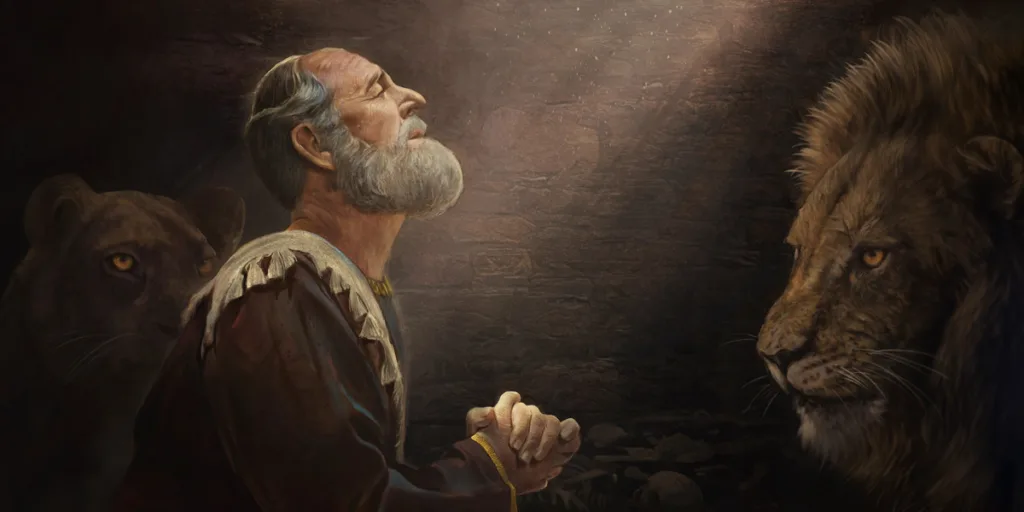According to the Hebrew Bible, Daniel was a noble Jewish youth of Jerusalem taken into captivity by Nebuchadnezzar II of Babylon. He served the king and his successors with loyalty and ability until the time of the Persian conqueror Cyrus, all the while remaining true to the God of Israel. However, there is no clear evidence that suggests that Daniel was a eunuch.
A eunuch is a man who has been castrated. Throughout history, castration often served a specific social function. Eunuchs were commonly employed in the royal courts of ancient civilizations as they were considered to be trustworthy and loyal. However, there is little indication in the biblical narrative that Daniel was a eunuch.
In fact, the book of Daniel describes him as a young man with great intellect and wisdom, who was able to interpret dreams and visions. He was also highly respected by the Babylonian and Persian rulers he served, and his piety and devotion to God were well-known.
Furthermore, the book of Daniel describes events were he is referred to as a man. For example, in Daniel 10:11, the angel Gabriel addresses Daniel as “a man greatly loved.” This suggests that Daniel was not a eunuch and was capable of fathering children.
It is possible that the confusion about Daniel’s status as a eunuch may have arisen due to a misinterpretation of the term “eunuch” in ancient times. The term may have been used more broadly to refer to high-ranking officials who served in the royal court, even if they were not actually castrated.
While there is no clear evidence to suggest that Daniel was a eunuch, the confusion may have arisen due to a misinterpretation of the term in ancient times. Regardless of his status, Daniel’s wisdom, piety, and devotion to God have made him a beloved figure in religious history.
Who Were Eunuchs In The Bible?
In the Bible, eunuchs were men who had been castrated or born without the ability to reproduce. They were often employed in positions of authority and trust, such as royal court officials or guardians of the harem. Eunuchs were seen as being sexually neutral, and therefore, less likely to be a threat to the ruler’s wives and concubines. In addition to castration, some eunuchs were also subjected to other forms of physical mutilation, such as the removal of the penis. In Matthew 19:12, Jesus refers to eunuchs as being unfit for marriage, and describes tree types of eunuchs: those who were castrated, those who were born incapable of reproduction, and those who chose to abstain from marriage for the sake of the Kingdom of God.

What Makes A Eunuch A Eunuch?
A eunuch is a man who has undergone castration, which involves the removal of the testicles. This results in the loss of the male sex hormones, namey testosterone, which are responsible for the development of secondary sexual characteristics such as facial hair, deep voice, and muscle mass. As a result of castration, eunuchs typically have a high-pitched voice, a lack of body hair, and reduced muscle mass. Historically, eunuchs were often castrated for specific social functions such as serving in royal courts or religious institutions. Today, castration is mostly performed for medical reasons such as cancer treatment or gender reassignment surgery.
What Kind Of Man Was Daniel In The Bible?
According to the Hebrew Bible, Daniel was a man of noble birth who lived in Jerusalem during the Babylonian captivity. He was taken captive by King Nebuchadnezzar II of Babylon and served the king and his successors with loyalty and wisdom, earning teir respect and admiration. Daniel remained true to his faith in the God of Israel throughout his life, even when faced with persecution and death.
He was known for his ability to interpret dreams and visions, and he was highly respected for his wisdom and intelligence. He was appointed as a high-ranking official in the Babylonian court, serving as an advisor to the king.
Daniel was a man of great courage and faith, and he was willing to risk his life to remain faithful to God. He refused to bow down to the king’s golden statue and was thrown into a den of lions as punishment, but God protected him and he emerged unscathed.
Daniel was a man of great character and integrity, whose faith and wisdom made him a respected figure in both the Babylonian and Persian empires.
Conclusion
There is no direct evidence to suggest that Daniel was a eunuch. While the Book of Daniel does descibe him as being taken into captivity by Nebuchadnezzar II and serving the king and his successors with loyalty, there is no mention of castration or any other indication that he was a eunuch. However, the Bible does make references to eunuchs and their roles in society, and some scholars have speculated that Daniel may have served in a similar capacity. Ultimately, the question of whether or not Daniel was a eunuch remains a matter of interpretation and debate among scholars and theologians.
